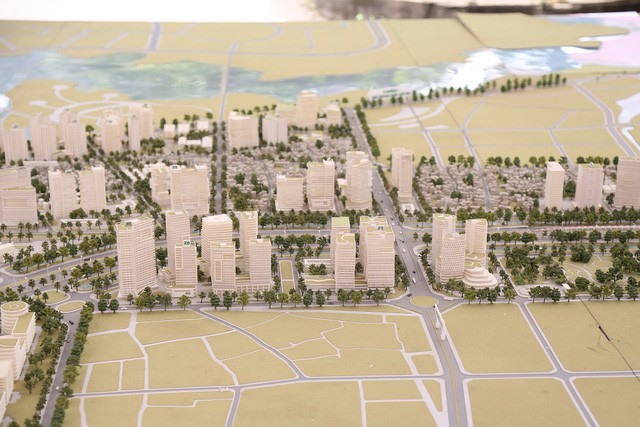Many provinces and cities have licensed projects worth billions of US dollars through their investment forums this year.

Many provinces and cities have licensed projects worth billions of US dollars through their investment forums this year. But experts say the key issue remains how to push these projects from the planning to the action stage.
Sixty-six projects worth nearly VND169 trillion (US$7.2 billion) were granted investment registration certificates at an investment promotion conference in the central
Early this month, the Can Tho City People’s Committee awarded investment certificates for 10 projects with committed capital of about VND8 trillion and inked co-operation agreements with other investors with total investment capital of VND85 trillion.
Also at an investment conference in mid-June, Ha Noi successfully sought investment for 71 projects worth over VND397.3 trillion (roughly $17 billion), of which 11 projects had foreign direct investment capital of VND130 trillion ($5.4 billion).
Many investors committed investment capital of hundreds of million to billions of dollars, including a mega smart city project worth $4 billion in Dong Anh District, Ha Noi, with investment by joint venture between Vietnamese BRG Group and Japanese Sumitomo, and $600 million high-end complex Lotte Mall Ha Noi project.
At an investment conference in
The most prominent project was the solar power plant invested by South Korean SY Panel Group with total investment of over VND10.2 trillion ($450 million). This is the biggest solar energy project in Viet
Similar events in other provinces also recorded a large amount of committed investment capital such as Soc Trang ($5.4 billion), Thai Nguyen ($2 billion), Binh Phuoc (nearly $1 billion) and Tien Giang ($685 million).
Projects on paper only?
At most investment forums, a lot of big projects have been signed but many projects are moving slowly and licences or permits are being revoked.
Earlier this year, Nghe An had a meeting with investors and granted investment certificates for 26 projects worth over VND13 trillion. After the meeting, the provincial leaders have pushed investors to start construction no later than June 20. However, apart from the $1-billion
The province also has a billion-dollar slow-moving project, the Kobelco steel project, which was licensed in 2010. Construction on the first plant was slated to start in early 2011, but to date, this project has yet to be put into action.
According to Dau Anh Tuan, head of the Legal Department of the Viet Nam Chamber of Commerce and Industry, the scramble for foreign investment in many provinces is still influenced by local authorities’ hope that they can trumpet success in attracting foreign dollars — meaning they’re less concerned with whether those dollars materialise into broken ground.
“In attracting investment, the role of the local authority is very enormous, if not the most important,” Tuan said and suggested the provincial authority change the structure of investment promotion activities, focusing on the quality of projects and investors rather than massive large-scale projects.
Prime Minister Nguyen Xuan Phuc at the investment forum in Binh Phuoc this year also said: “Over $1 billion was signed at the event. That is impressive, but the licences must go into action. Do not let the projects and licences live only on paper.”
According to Phan Huu Thang, former director of the Foreign Investment Agency under the Ministry of Planning and Investment, after investors registered the project, the local authority has to scrutinise their real capability, as well as oversee the implementation process. Strong measures such as revoking licences are also necessary if the projects are slow moving. — VNS





